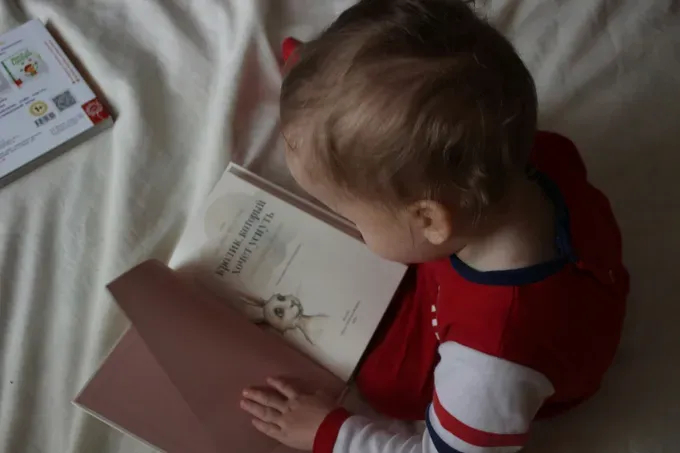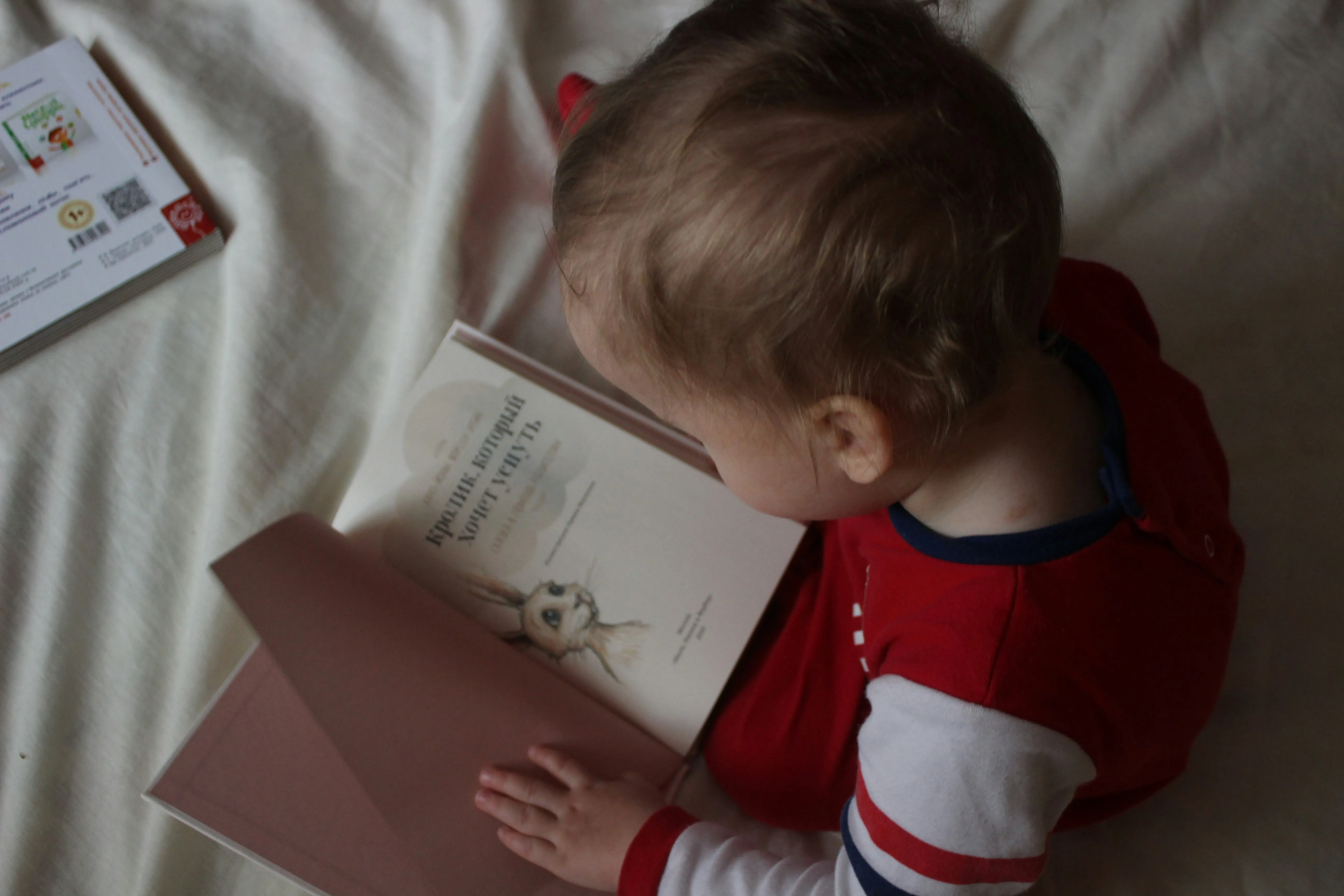Early Childhood Literacy for Brain Growth
Childhood Literacy for Brain Growth 0 - 36 Months
As a parent, you want the best for your child. You want them to grow up with all the necessary skills to succeed in life. Did you know that early childhood literacy plays a crucial role in brain growth and future learning potential? In this blog, we will dive deep into the importance of early childhood literacy and its impact on brain development. From recognizing important sounds to imitation and pretend reading sessions, we will cover all stages of literacy development from birth to 36 months. We will also explore how early literacy experiences can influence later academic performance and prepare your child for kindergarten readiness. Join us as we embark on this exciting journey of early childhood literacy!
A Path

The Importance of Early Childhood Literacy
Early childhood literacy, a vital factor in cognitive growth and development, significantly impacts future academic performance. Positive parenting practices play a crucial role in enhancing early childhood literacy skills, fostering cognitive abilities and brain development in preschool children. The foundation of cognitive development in early childhood sets the stage for lifelong learning, laying the groundwork for future success. Recent studies have highlighted the profound influence of early childhood literacy on shaping future learning potential, emphasizing the need for a nurturing environment that encourages literacy skill development. Understanding the importance of early childhood literacy not only promotes a child's cognitive and emotional well-being but also sets the stage for their academic success in later years, reinforcing the significance of investing in early literacy experiences.
The Role of Early Childhood Literacy in Brain Growth
Early childhood literacy has a profound impact on cognitive development during early adolescence, playing a significant role in brain maturation and cognitive abilities. The development of literacy skills in early childhood contributes to positive mental health and supports the growth of executive function and problem-solving skills. Additionally, it shapes abstract thinking and logical operations, setting the stage for continued cognitive growth. Recent studies have shown that literacy skills acquired at a young age have a lasting impact on cognitive development into late adolescence and beyond, showcasing how crucial the early years are for cognitive brain growth and overall well-being.
How Early Childhood Literacy Shapes Future Learning Potential
In the early years of a child's life, their exposure to literacy significantly influences their cognitive development. Through building a foundation for language and cognitive skills, early childhood literacy sets the stage for long-term cognitive benefits, positively impacting academic achievement. This essential cognitive growth through literacy not only shapes future learning potential but also contributes to the overall cognitive abilities of children. Research has shown that literacy skills acquired in early childhood have a lasting impact on a child's cognitive development, preparing them for success in their academic journey.
Development of Literacy Skills from Birth to 3 Months
During the first three months, infants begin recognizing important sounds crucial for early childhood literacy. Exposure to language and sounds at this early age significantly contributes to cognitive development, influencing rapid cognitive growth and language development. It is a period marked by the influence of early cognitive stimulation on children's brain development. Parents play a significant role in promoting their infant's early cognitive development, providing a supportive environment for the child's growing brain. This nurturing approach lays the foundation for future literacy skills and cognitive abilities, setting the stage for continued cognitive growth and development.
Recognizing Important Sounds
Recognizing the significance of early exposure to language and literacy in fostering brain development is crucial for child development. Young children have a remarkable ability to learn important sounds from their environment, be it animal noises or musical instruments. Regular reading to children not only enhances sound recognition but also contributes to overall language development. Interactive activities like singing and playing games make learning sounds engaging for children, promoting cognitive growth in an enjoyable way. Furthermore, encouraging children to ask questions and explore their surroundings nurtures their language and literacy skills, laying a strong foundation for future cognitive development.
Sorting Out Speech Sounds
Early exposure to speech sounds lays the groundwork for literacy development. Children derive benefits from being exposed to a diverse range of speech sounds, even those not present in their native language. Engaging in activities like nursery rhymes and word games can aid in the development of phonological awareness among children. Furthermore, reading aloud to children not only fosters literacy development but also strengthens the bond between the parent and child, contributing to a positive parenting style. The active involvement of parents and caregivers is essential in promoting early childhood literacy, which, in turn, plays a pivotal role in cognitive brain growth.
Literacy Development from 4 to 6 Months

Engaging with infants in activities like singing, talking, and playing facilitates language development, while introducing age-appropriate books and interactive toys nurtures literacy skills. Incorporating these elements into daily routines, such as mealtime and diaper changes, provides valuable opportunities for language development. Additionally, creating a literacy-rich home environment further supports early childhood literacy. This nurturing landscape is vital in the developmental journey of infants from 4 to 6 months, promoting brain growth and cognitive development.
Interaction with Books
Engaging with books from an early age contributes to the development of language and literacy skills in young children. Through interactive reading sessions, where children are encouraged to participate in the storytelling process and answer questions, cognitive and social-emotional growth is fostered. The repetition of familiar stories aids in memory and comprehension, while exposure to a diverse range of books broadens vocabulary and enhances knowledge about the world. Additionally, the shared activity of reading together strengthens the bond between parent and child, creating a positive and nurturing environment for learning and growth.
Developing Attention Span for Reading
Building a child's attention span for reading is crucial in early childhood literacy development. By introducing age-appropriate books and interactive toys, parents can create a literacy-rich environment that supports the child's cognitive growth. Engaging in daily routines, such as reading during mealtime or before bedtime, provides consistent exposure to language and literacy, contributing to the child's attention span development. Reading books together not only fosters language and literacy skills but also strengthens the bond between parent and child, creating positive associations with reading. Interactive reading sessions where the child is actively involved in the story can improve cognitive and social-emotional development. These interactions help children develop the necessary focus and concentration for extended periods of reading, laying the foundation for a lifelong love of books and learning.
Progression of Literacy Skills from 9 to 12 Months

By 9 to 12 months, infants start recognizing and pointing to major body parts in pictures, demonstrating the early stages of understanding visual cues. They also begin making animal sounds and following short story lines, showing an emerging ability to engage with narrative content. Recent studies have indicated that this stage marks the beginning of imitation and pretend reading sessions, which can contribute to the development of early literacy skills. Additionally, exposure to varied books at this age can help broaden their vocabulary and knowledge about the world, ultimately fostering a love for reading and learning. As they interact with age-appropriate books, infants are able to follow short storylines, setting the foundation for future comprehension and memory of event sequences in stories, which become more prominent in their development in the subsequent years. This critical period plays a crucial role in the progression of literacy skills and sets the stage for advanced literacy development in the years to come.
Pointing to Major Body Parts in Pictures
Engaging children in identifying body parts in pictures plays a crucial role in nurturing their cognitive abilities. This activity stimulates brain development in early childhood, contributing to mental health and cognitive growth. The process of pointing to major body parts in pictures aids in the recognition of visual cues and is an essential component of early cognitive development. By encouraging children to recognize body parts in pictures, parents and caregivers are actively supporting their cognitive growth and preparing them for future learning potential. Recent studies emphasize the significance of early childhood literacy in shaping the cognitive abilities of children, and the recognition of body parts in pictures is an integral part of this developmental stepping stone.
Making Animal Sounds and Following Short Story Lines
Encouraging young children to imitate and produce animal sounds can significantly contribute to the development of their cognitive abilities. By involving them in this playful activity, parents and educators can effectively stimulate cognitive growth in preschool-aged children. Additionally, integrating short story lines into early childhood literacy programs can further enhance cognitive development by improving children's cognitive abilities. Incorporating these activities into the daily routines of children can have a positive impact on their cognitive skills, preparing them for future learning endeavors. Research has shown that making animal sounds and following short story lines are valuable tools for promoting cognitive growth in young children, highlighting the vital role of early childhood literacy in fostering cognitive development.
Advanced Literacy Development from 25 to 36 Months

Advanced literacy experiences during the 25 to 36 months age group significantly enhance children's cognitive development. These experiences have a positive impact on cognitive growth, stimulating cognitive abilities crucial for mental and cognitive health. Fostering cognitive growth through advanced early childhood literacy experiences supports the overall development of children. Recent studies have shown that exposure to advanced literacy at this stage influences the prefrontal cortex and cognitive functions in a variety of ways. It is important to provide children in this age range with ample opportunities for advanced literacy experiences to support their cognitive growth and overall well-being.
Understanding of Visual Cues and Illustrations
Enhancing cognitive development occurs through understanding and recognizing visual cues and illustrations. Visual cues and illustrations are crucial elements in fostering cognitive growth, particularly in early childhood literacy. When children engage with visual cues and illustrations from an early age, they contribute to the development of cognitive abilities. A child's ability to recognize and interpret visual cues not only supports cognitive growth but also nurtures their overall cognitive development. Recent studies have shown that early exposure to visual cues and illustrations positively influences a child's cognitive development, laying the foundation for advanced cognitive abilities in the future. This indicates the significance of incorporating visual cues and illustrations into early childhood literacy initiatives, as they play a vital role in shaping a child's cognitive abilities and learning potential.
Recognition and Memory of Event Sequences in Stories

Recognition and memory of event sequences in stories during early childhood literacy play a significant role in influencing cognitive abilities. This influence supports cognitive growth by aiding in the crucial memory of event sequences in stories. Through early childhood literacy, children develop the capability to recognize and recall event sequences in stories, thereby contributing to their cognitive development. Recent studies have shown that the ability to remember and process the sequences of events in stories positively impacts cognitive growth. These experiences help children develop essential skills related to the recognition and recall of story sequences, which are vital for cognitive development.
Imitation and Pretend Reading Sessions
Engaging in activities that involve imitation and pretend reading has a positive impact on cognitive growth in children. These sessions play a vital role in fostering cognitive abilities, influencing the cognitive development of young minds. Recent studies have shown that imitation and pretend reading sessions contribute to nurturing cognitive growth in early childhood. By participating in such activities, children are able to develop their cognitive abilities through practical and concrete ways, thereby influencing their overall cognitive growth.
The influence of these sessions on cognitive development is significant as they provide children with the opportunity to mimic and engage in activities that stimulate the prefrontal cortex, which is crucial for cognitive development. In essence, imitation and pretend reading sessions are instrumental in shaping the cognitive growth of children in their formative years, setting the stage for future learning potential.
The Impact of Early Literacy Experiences on Kindergarten Readiness
Early literacy experiences significantly shape cognitive growth, directly impacting readiness for kindergarten. Positive parenting practices within these experiences have a profound effect on children's cognitive abilities, paving the way for kindergarten readiness. The role of early literacy experiences in preparing children for kindergarten cannot be overstated. Cognitive growth is strongly bolstered by these experiences, ultimately enhancing kindergarten readiness. The relationship between early literacy experiences and kindergarten readiness is pivotal for fostering cognitive development, setting the stage for future academic success.
How Does Early Literacy Exposure Influence Later Academic Performance?
Early literacy exposure plays a crucial role in shaping cognitive growth and impacting later academic performance. Positive early childhood literacy experiences significantly contribute to improved academic achievement, as they influence the cognitive abilities of children. The impact of early literacy exposure on academic performance is essential for overall cognitive development.
Early Childhood Literacy Skills Development In Reading

FREQUENTLY ASKED QUESTIONS
How does parenting affect cognitive development?
Parenting plays a crucial role in shaping a child's cognitive development. Positive parenting practices, such as engaging in educational activities and reading to children, have been shown to enhance brain growth. On the other hand, negative parenting practices can hinder cognitive development and have long-term negative effects. It is essential for parents to provide a supportive and stimulating environment for their children's cognitive development.
What are some activities parents can do to promote cognitive brain development in their children?
Engage in daily reading sessions, fostering language and literacy skills. Encourage playtime with educational toys like puzzles and blocks for problem-solving development. Singing songs and playing music aids memory retention and cognitive growth. Interactive activities such as cooking or gardening promote hands-on learning and exploration.

Conclusion
To foster brain growth and ensure future learning potential, early childhood literacy plays a crucial role. It begins from a young age, with infants recognizing important sounds and sorting out speech sounds. As they grow, interaction with books and developing attention span for reading become vital. By 9 to 12 months, pointing to major body parts in pictures and following short story lines are stepping stones. Advanced literacy skills develop from 25 to 36 months, with understanding visual cues, recognition and memory of event sequences, and imitation and pretend reading sessions. These early literacy experiences have a significant impact on kindergarten readiness and later academic performance. By nurturing early childhood literacy, we provide children with a strong foundation for lifelong learning and success. Let's invest in their future by fostering a love for reading and literacy from the very beginning.







































































































































